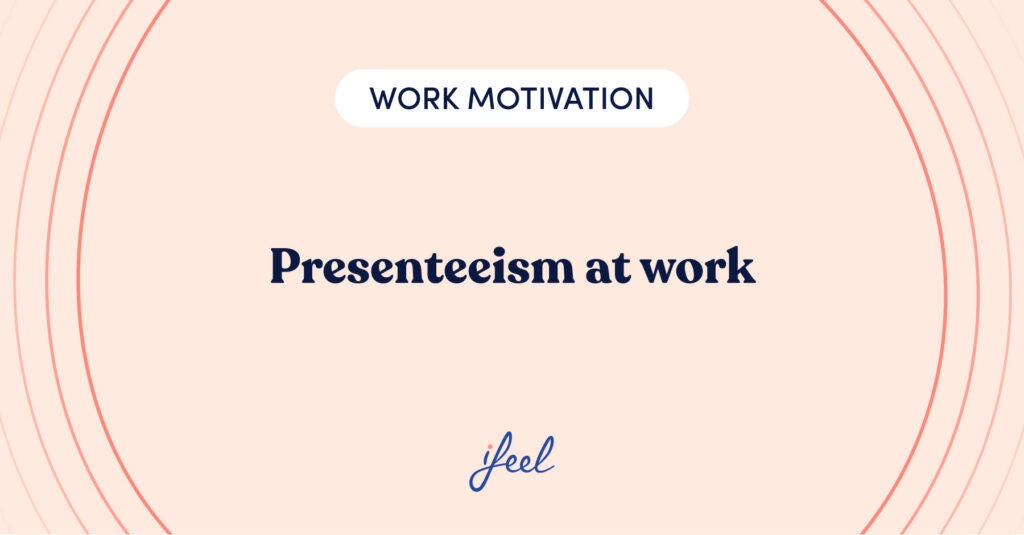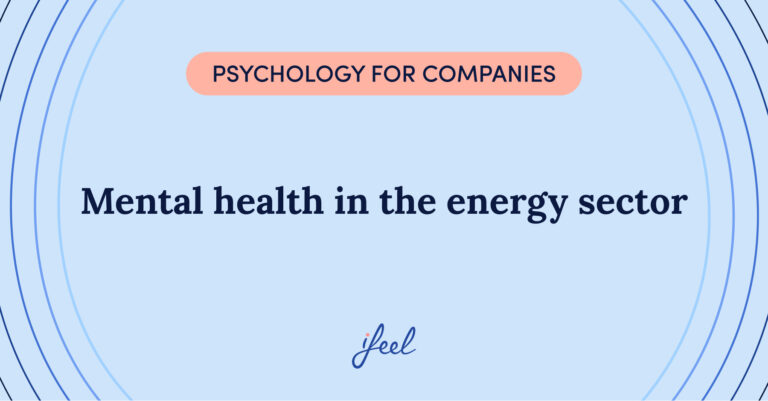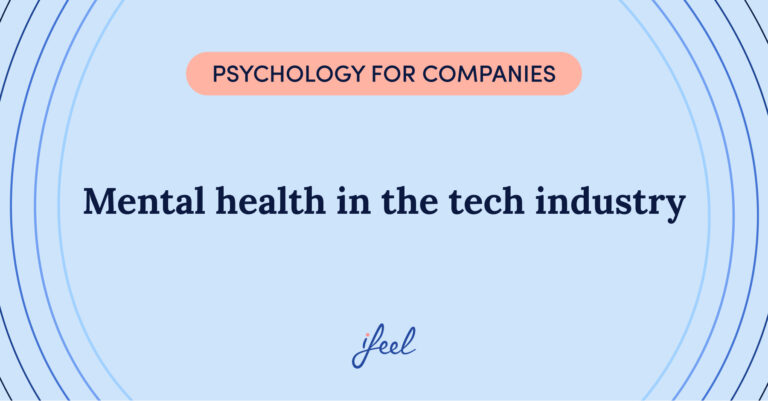Did you know that presenteeism at work costs companies almost twice as much as absenteeism? Well, it’s true.
In the age of hyperconnectivity and the “always available” culture, a silent spectre haunts the offices of large corporations: workplace presenteeism. This phenomenon, which goes beyond mere physical presence at work, is eroding employee productivity and well-being at an alarming rate.
Imagine a professional sitting at their computer, seemingly busy, but actually battling a persistent headache or anxiety caused by personal problems. Multiply this scenario by thousands of employees in companies with more than 1,000 staff, and you have annual losses that far exceed the cost of traditional absenteeism.
What is presenteeism at work?
We refer to presenteeism at work as a pattern of behaviour present in many employees and encouraged in too many companies. According to this pattern, you have to be physically present at your workplace for every hour of the working day, even more so if possible, regardless of how useful this is for carrying out your tasks. Workplace presenteeism also refers to employees coming to work despite having health reasons for being absent.
In this sense, presenteeism at work refers to the phenomenon where employees are physically present at work but not fully productive due to physical or mental health issues. This phenomenon goes beyond mere physical presence; it involves a decrease in the quality and quantity of work performed.
According to recent research, 62% of Spanish workers admit to going to work even when their performance is negatively affected by work-related health problems. This alarming statistic highlights the magnitude of the problem and the urgent need for organisations to take immediate action.
This phenomenon is usually discussed in contrast to absenteeism, which occurs when workers are absent from work without justification.
Consequences of presenteeism at work
| Consequence | Description |
|---|---|
| Decreased productivity | Physical presence without a focus on results can reduce efficiency. |
| Loss of creativity | Rigid schedules and tasks limit innovation and creative thinking. |
| Workplace accidents | Stress and lack of attention can increase the risk of accidents. |
| Legal problems | Interpersonal conflicts can lead to harassment or workplace violence. |
| High economic cost | The cost of presenteeism can be higher than that of sick leave due to health problems. |
| Impact on well-being | The focus on physical presence negatively affects employees’ mental health. |
Analysis of presenteeism in business environments
Presenteeism at work should be evaluated using efficiency criteria that benefit both employees and organisations. Workers’ physical presence, whether in the office or in a remote environment, should be considered a strategic means of achieving business objectives. This approach should improve employee performance without compromising their well-being or causing excessive burnout.
When these efficiency criteria are distorted, the physical presence of the worker becomes an end in itself. This translates into a demand for constant presence, regardless of the real impact on the company’s productivity or the psychological well-being of the employee. Such an approach can undermine motivation and make it difficult to reconcile work and other areas of personal life.
It is therefore essential that companies adopt a balanced approach, where physical presence is aligned with improved performance (well-being of the company) and the overall health of the worker, thus ensuring a sustainable and productive work environment.
Causes of presenteeism at work
Presenteeism at work is often based on the misconception that more hours worked automatically translates into better performance. This phenomenon is also driven by a rigid organisational structure, where strict adherence to fixed schedules is required, regardless of the actual workload.
However, extending time spent at the workplace does not guarantee an increase in productivity. Furthermore, inflexible schedules that do not adapt to the changing needs of the company and its employees can lead to organisational rigidity and a loss of resources, negatively affecting the working environment.
Therefore, it is crucial to identify when a team or the organisation as a whole has adopted a pattern of presenteeism at work, whether consciously, by imitation or out of obedience. Correcting this approach is crucial for enhancing employee productivity and psychological well-being, ultimately contributing to a healthier and more efficient work environment.

Costs of presenteeism for the company
Although often overlooked, workplace presenteeism represents a more significant economic challenge than absenteeism. Research has demonstrated this, indicating that the annual cost of presenteeism in Spain is 1.5 times higher than that of absenteeism. This raises a crucial question: Is presenteeism the new absenteeism?
Unlike absenteeism, which is easily detectable and quantifiable, presenteeism is hidden under an appearance of normality in the office. Employees are physically present, but factors such as health problems or stress go unnoticed, reducing their productivity. This invisibility allows presenteeism to silently erode business efficiency and performance, becoming a more complex and potentially more damaging challenge than absenteeism.
The Workplace Guide on Mental Health published by BKK Bundesverband / ENWHP Secretariat explains that companies can face several problems due to this phenomenon, such as decreased productivity, loss of creativity, stress-related accidents at work, and legal issues related to harassment and violence due to interpersonal conflicts.
The economic cost of presenteeism is estimated to be four times higher than that of absences related to mental health problems and three times higher than the cost of replacing these employees. These consequences underscore the importance of preventing presenteeism to improve employee well-being and organisational performance.
For this reason, companies wishing to optimise their efficiency should pay attention to this organisational pattern and seek strategies to mitigate it.
The Leadership Lens🔎
This involves not only implementing policies but also actively participating in and supporting mental health programs. By doing so, leaders can cultivate a workplace culture that prioritises well-being, ultimately leading to a more resilient and effective enterprise.
From a leadership perspective, addressing presenteeism at work requires a shift in focus from merely tracking attendance to understanding the quality of employee engagement and productivity. Leaders must champion mental health initiatives and model healthy behaviors themselves.
How to prevent presenteeism at work
To effectively address presenteeism at work, organisations must implement comprehensive strategies that prioritise employee well-being. Some effective measures include:
1. Optimising work organisation
Although workplace presenteeism may seem like a means to achieve goals such as improving performance, gaining professional recognition, or avoiding external responsibilities, its negative impact on the well-being of employees and companies is significant.
To prevent this dynamic, it is essential to restructure the organisation of tasks and meetings, minimising the need for physical presence. By eliminating distractions and optimising time, you can foster a corporate culture that discourages presenteeism.
2. Focus on results
Presenteeism at work often occurs when employees prioritize adhering to rigid schedules over completing their assigned tasks. To combat this problem, companies should promote a results-oriented approach, where time and resources are used effectively to fulfil job responsibilities. This shift in perspective can help reduce presenteeism and improve productivity.
3. Recognise efficiency
Presenteeism persists in part because mere presence in the workplace is rewarded. Companies must change this mindset by recognising and valuing efficiency and the optimal use of resources by employees. By rewarding the quality of work rather than just the number of hours worked, presenteeism can be reduced and a healthier work environment fostered.
4. Flexibility in work format
Recent experience with remote working has shown that effectiveness does not depend on physical presence or inflexible schedules. Companies seeking to prevent the negative effects of presenteeism, as part of psychosocial risks, should implement flexible working formats. This adaptability not only improves efficiency but also contributes to the overall well-being of employees.
Download our Psychosocial Risk Factors Template to prevent mental health issues at work. With the support of our experts, you will efficiently identify and address these risks, promoting the well-being of your employees and the productivity of your company. Download it now and improve your work environment!
5. Foster a positive workplace culture
It is essential to create an environment where employees feel valued and supported. This involves promoting open communication and establishing policies that demonstrate a genuine commitment to employee well-being.
In addition, organisations should create safe spaces where employees can openly discuss their concerns without fear of repercussions. To do this, tools and technologies should be used to proactively identify and address mental health issues. This may include digital wellbeing solutions and psychological support programmes
At ifeel, we have designed an essential resource to foster a positive culture in your team. Discover effective strategies to improve the working environment and enhance the wellbeing of your employees. Don’t miss out and download it for free now!
Mental health at work, one of the biggest challenges facing businesses today
Don’t let presenteeism silently drain your bottom line. When employees show up but can’t perform at their best due to mental health challenges, productivity suffers and costs multiply. If your company hasn’t taken the plunge yet, now is the time.
Ready to transform your organisation? Discover how ifeel can help you make a difference.
If you would like more information about the ROI of our customised mental health solution for businesses, simply request it here and our team will provide you with a calculation tailored to the specific characteristics of your company.











